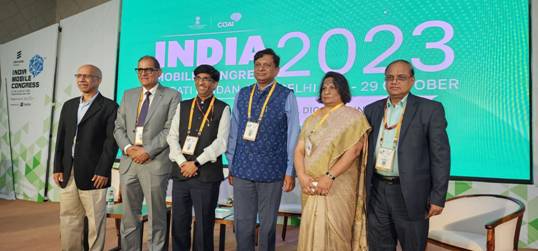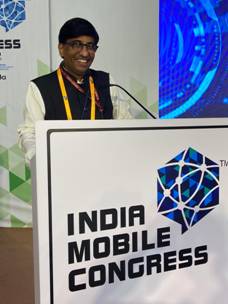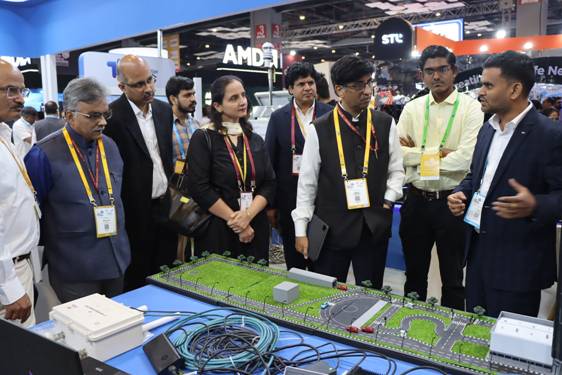India can steer 6G standardization & become a global exporter of such technologies: DST Secretary
India can steer 6G standardization & become a global exporter of such technologies: DST Secretary
Posted On: 29 OCT 2023 , Delhi
Secretary Department of Science and Technology (DST) Professor Abhay Karandikar said that India with its’ indigenous 5G technology in place, committed and dedicated team of researchers in academia, industry players and start-ups has an ecosystem to bring the country to a position of strength in terms of mobile network technologies, at the Indian Mobile Congress (IMC) on October 29, 2023.
“We have an opportunity to steer the 6G standardization in a way which we have not really thought of before, as well as become a global exporter of such technologies in the years to come,” Professor Karandikar said at his session during Second International Workshop on 6G Standardization that took place as part of the IMC which was inaugurated by the Prime Minister on October 27, 2023.
“As you know that the 5G itself was a paradigm shift from 2G and 3G mobile networks, while 6G would be really a game changer and India presents a fertile use case scenario for influencing the 6G research and the standardization in a vastly different way,” DST Secretary added.
He added that with the advent of mobile communication, India is contributing hugely to the massive escalation of global data volume and by 2030 India’s share may increase to one third or even more of the total data generated from the standard mobile communication.
“We will have a variety of use cases from very high to a very low data rate, from very stringent latency environments to latency tolerant applications, heterogeneous radio access technologies and a range of access devices. This diversity in India will be a useful test scenario for cellular mobile communications, and also devices connected through Wi -Fi, drones, satellite, terrestrial networks, sensors as well as IoT,” Professor Karandikar pointed out.
“However, we still have a long way to go as far as research in on standardization and filing patents is concerned. Also, a significant amount of work needs to be done in the core network itself. Core network will present huge scalability challenges and to overcome this, an efficient heterogeneous radio access technology which can help pumping in large volumes of data to the core networks would be very useful,” he explained.
“The research challenges that these areas throw up, can be supported by the Department of Science and Technology through its initiatives like the National Mission for Cyber Physical Systems (NMICPS). Besides primary telephone connectivity, it can span communication in sectors of agriculture, health, transportation, logistics and so on. Besides, with the ANRF soon to be operational, some of these advanced areas can have new mechanisms of funding in place,” Professor Karandikar stressed at the IMC.
He also visited the stalls put up at the IMC by the Technology Innovation Hubs set up under NMICPS and discussed about the technologies under display.
Dignitaries from the Government, academia and the Industry like Shri Apurva Chandra, Secretary Ministry of Information & Broadcasting, Shri V. Raghunandan, Secretary TRAI, Shri R K Upadhyay. C-DoT, Shri R R Mittar, Advisor, TEC attended the workshop, the different sessions and interacted about mobile network technologies, their standardization, their future and related issues during the 3 day IMC organized in New Delhi.








